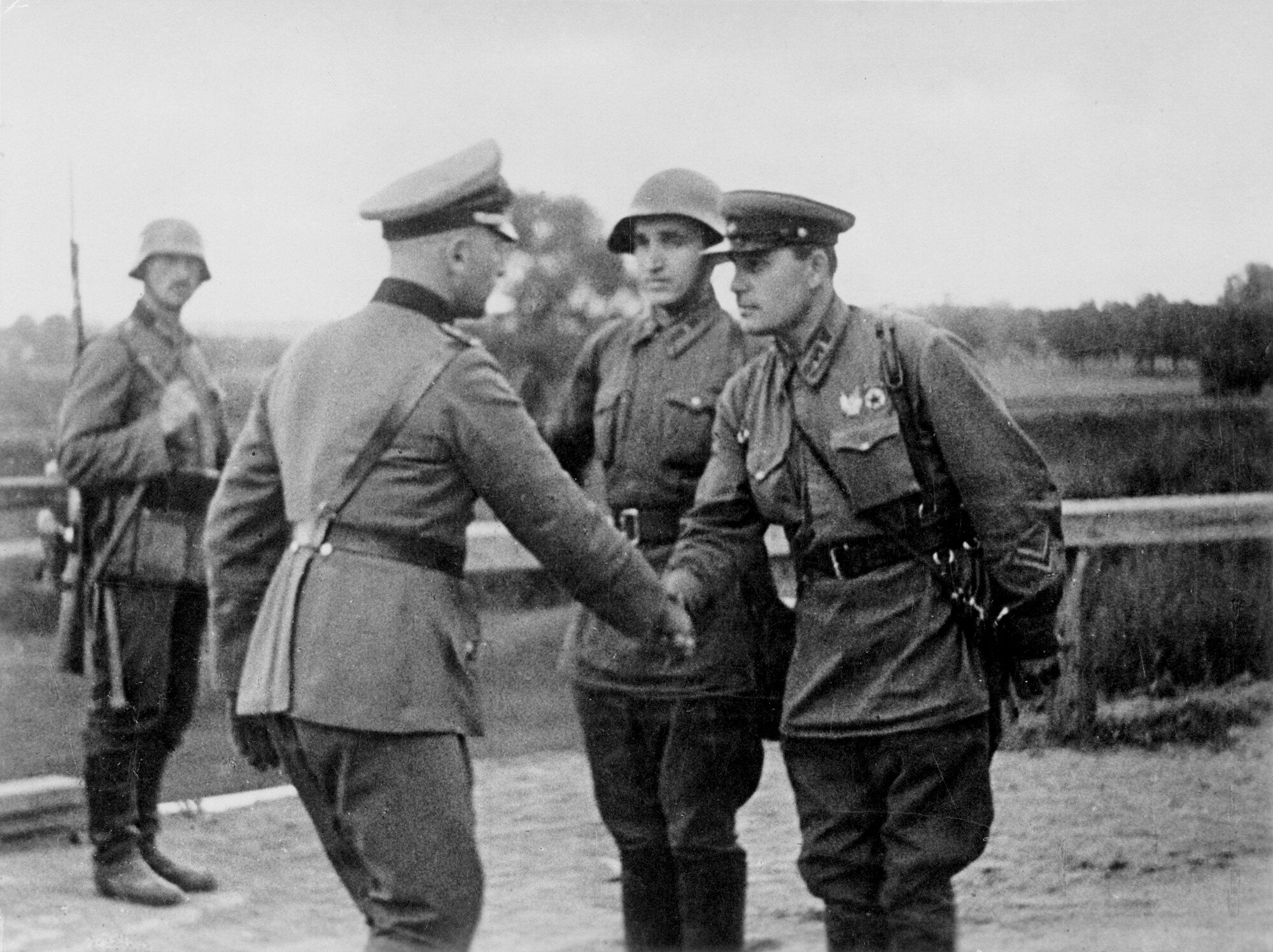Be sure to get right back when you're conversant with the subject.
OK, I'm back. I love it when you shamelessly rewrite history.
You wrote:
"Stalin determined the Allies attack would come via Normandy, and now the more advantageous, through Italy."
Stalin was desperate for a Western front to take the pressure off the Eastern one. All the allies wanted the same thing, but Stalin never dictated where it should be. Normandy was an American/British decision.
You wrote:
"Stalin insisted all of Germany ‘pasturized,’ all industry destroyed, so that the Red Army has no opposition post war"
If you saying the Red Army ‘pasturized’ (sic) Germany so that the Red Army had no opposition post war, well duh? If you're saying the Allies pasturized’ (sic) Germany so that the Red Army had no opposition post war, that is just plain wrong. Any pasteurization of Germany by the Allies was so the Allied armies would be victorious.
1. "I love it when you shamelessly rewrite history."
You're a liar.
Everything I post is 100% true, accurate and correct.
2. "Stalin insisted all of Germany ‘pasturized,’ all industry destroyed, so that the Red Army has no opposition post war"
If you saying the Red Army ‘pasturized’ (sic) Germany so that the Red Army had no opposition post war, well duh? If you're saying the Allies pasturized’ (sic) Germany so that the Red Army had no opposition post war, that is just plain wrong. Any pasteurization of Germany by the Allies was so the Allied armies would be victorious."
I told you to stay away until you were conversant with the topic.
You didn't.
3. The worst blunder was bowing to
Stalin's demands that Germany be pulverized, reduced to ashes, rather than be allowed to surrender.....the doctrine of 'unconditional surrender'....was the very worst.
... the policy was first mentioned in January of 1943, at the Casablanca Conference.
a. The State Department Casablanca Conference records explains that this controversial surrender policy came from
a meeting of a State Department and Council on Foreign Relations panel.
BTW....that was the same panel with "...working alongside him in the Council was
Alger Hiss, a newly elected member sympathetic to the left wing of the Democratic Party,..."
The group functioned via this mantra:
"Cooperation between the United States and the Soviet Union is as essential as almost anything in the world today, and unless and until it becomes entirely evident that the U.S.S.R. is not interested in achieving cooperation, we must redouble, not abandon, our efforts, when the task proves difficult."
About CFR
Since the group briefed Roosevelt prior to January 1943, clearly the idea of 'unconditional surrender did not originate with Roosevelt.
Churchill knew nothing of the plan.
Actually, the very first use of the phrase 'unconditional surrender" at Casablanca was by Stalin's spy,
Harry Hopkins. One day earlier, January 23, before the President announced it, Hopkins told the grand vizier of Morocco, "The war will be pursued until Germany, Italy, and Japan agree to unconditional surrender."
"Harry Hopkins: Ally of the Poor and Defender of Democracy," by George McJimsey, p.277
and FRUS: Washington and Casablanca, p. 703.
4. When, on January 24, 1943, Roosevelt read several pages of notes discussing the doctrine to reporters, according to Sherwood,
"carefully prepared in advance,"...one might ask who regularly prepared and edited said notes.
a.
Harry Hopkins,- FDR's alter ego, co-president, or Rasputin, "...the closest and most influential adviser to President Franklin D. Roosevelt during World War II, was
a Soviet agent." and “the most important of all Soviet wartime agents in the United States.”
The Treachery Of Harry Hopkins
The Treachery Of Harry Hopkins
Stalin demanded it, a plan that extended the war by at least months, or year.
5.
The 'unconditional surrender policy helped prolong the war in Europe through its usefulness to
German domestic propaganda that used it to encourage further resistance against the Allied armies,
and its suppressive effect on the German resistance movement since even after a coup against
Adolf Hitler:
"...those Germans — and particularly those
German generals — who might have been ready to throw Hitler over, and were able to do so, were discouraged from making the attempt by their inability to extract from the Allies any sort of assurance that such action would improve the
treatment meted out to their country."
Michael Balfour, "
Another Look at 'Unconditional Surrender'",
International Affairs(Royal Institute of International Affairs 1944-), Vol. 46, No. 4 (Oct., 1970), pp. 719-736
Was Roosevelt stupid...???
Unconditional surrender.....FDR's obedience to Joseph Stalin who wanted to make certain Germany could not resist his army post-war....and his greatest blunder.

